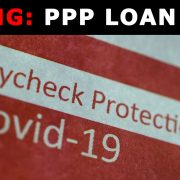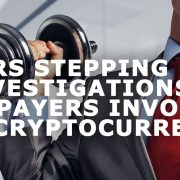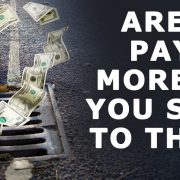Don’t Think That COVID-19 Masks Illicit Cannabis Operators Or Their Landlords From Enforcement
It is a false sense of security to think that the COVID-19 pandemic will essentially terminate cannabis enforcement initiatives throughout California.
Anyone conducting business in cannabis surely knows that under Federal law (Controlled Substances Act 21 U.S.C. 801) marijuana is designated as a Schedule I controlled substance due to the historical belief that it has a high potential for abuse, no currently accepted medical use in treatment, and lack of accepted safety for use under medical supervision. So the risk is apparent that at any time Federal authorities could come and shut you down but don’t think that just because cannabis is legal in California, you do not have to worry about the State.
California law mandates that you can only sell cannabis if you have obtained a license to do so. These licenses being issued by the BCC. If you don’t have a license, then selling cannabis or transporting it in order to sell it is still a crime under H&S Code §11360.
Enforcement in Los Angeles
Reducing the number of illicit cannabis sellers and growers in Los Angeles has long been a top priority for licensed businesses, which say they cannot compete on pricing since legal recreational sales took effect in January 2018.
Los Angeles provides a legal framework for the city to prevent access to a property where unlawful activity occurs, including unlicensed commercial cannabis activity. The city’s existing administrative nuisance abatement procedures, codified in Los Angeles Municipal Code (LAMC) Sections 12.27.1 and 91.9003.3, establishes a process known as the “padlock ordinance” by which the Department of Building and Safety (DBS) may padlock, barricade, and/or fence a property following a violation of an abatement order issued by the Department of City Planning (DCP).
Under LAMC Section 12.27.1, “nuisance activity” includes illegal drug activity, any activity that adversely affects public health, peace or safety, or violations of other City and state law. Conducting commercial cannabis activity without authorization from the Department of Cannabis Regulation (DCR) would in most circumstances constitute nuisance activity under Section 12.27.1.
The property cannot be reoccupied until the required permits and/or clearances are obtained from DBS and DCP. (LAMC Sec. 91.9003.2.5.) Additionally, the business operator or property owner is responsible for all costs incurred by DBS, and any business operator, property owner or person in control of the property who fails to comply, or who fails to vacate, is guilty of a misdemeanor. (LAMC Sec. 91.9003.3.1; 91.9003.3.3.)
A push to enforce a new padlock ordinance targeting landlords and property owners of unlicensed cannabis shops has been on hold since March 2020. That’s when many city services and offices were shuttered to mitigate the proliferation of COVID-19 cases in Los Angeles County. However, as Los Angeles “re-opens” you should expect a resumption and increase in enforcement.
Penalties For Selling Cannabis Without A License.
For most defendants, unlicensed sale or transport for sale of cannabis is a misdemeanor punishable by up to six months in county jail and/or a fine of up to $1,000. For defendants under 18, it is an infraction.
Also, giving away or transporting for sale up to 28.5 grams of cannabis without a license is an infraction.
But the sale/transport for sale of cannabis without a license to do so is a felony for the following defendants:
- Defendants who have a prior conviction for one of a list of particularly serious violent felonies, including murder, sexually violent offenses, sex crimes against a child under 14, or gross vehicular manslaughter while intoxicated, or a sex crime that requires them to register as a sex offender;
- Defendants who have two or more prior convictions for H&S Code §11360 sale/transportation of cannabis;
- Defendants who knowingly sold, attempted to sell, or offered to sell or furnish cannabis to someone under 18; or
- Defendants who imported or attempted or offered to import into California, or transported or attempted/offered to transport out of California for sale, more than 28.5 grams of cannabis or more than four grams of concentrated cannabis.
In any of these scenarios, black market sale or transportation for sale of cannabis under H&S Code §11360 is punishable anywhere from two to four years in jail.
Transporting cannabis without intent to sell it, or giving cannabis away, is not a crime in California so long as BOTH of the following are true:
- You transport or give away not more than 28.5 grams of cannabis or eight grams of concentrated cannabis, and
- Any people you give cannabis to are 21 years of age or older.
What Should You Do?
You can count on State and local authorities coordinating resources and making comprehensive strikes on unlicensed and illegal cannabis operations for the safety of the public.
Both civil and criminal penalties will apply to unlicensed operators so it is imperative that anyone cultivating, manufacturing or distributing cannabis on a commercial basis in California seeks a local and state license for their operations immediately, if they have not already done so. Protect yourself and your investment by engaging a cannabis tax attorney at the Law Offices Of Jeffrey B. Kahn, P.C. located in Orange County (Irvine), the Inland Empire (including Ontario and Palm Springs) and other California locations. We can come up with tax solutions and strategies and protect you and your business and to maximize your net profits. Also, if you are involved in crypto currency, check out what a bitcoin tax attorney can do for you.











 Follow
Follow Follow
Follow